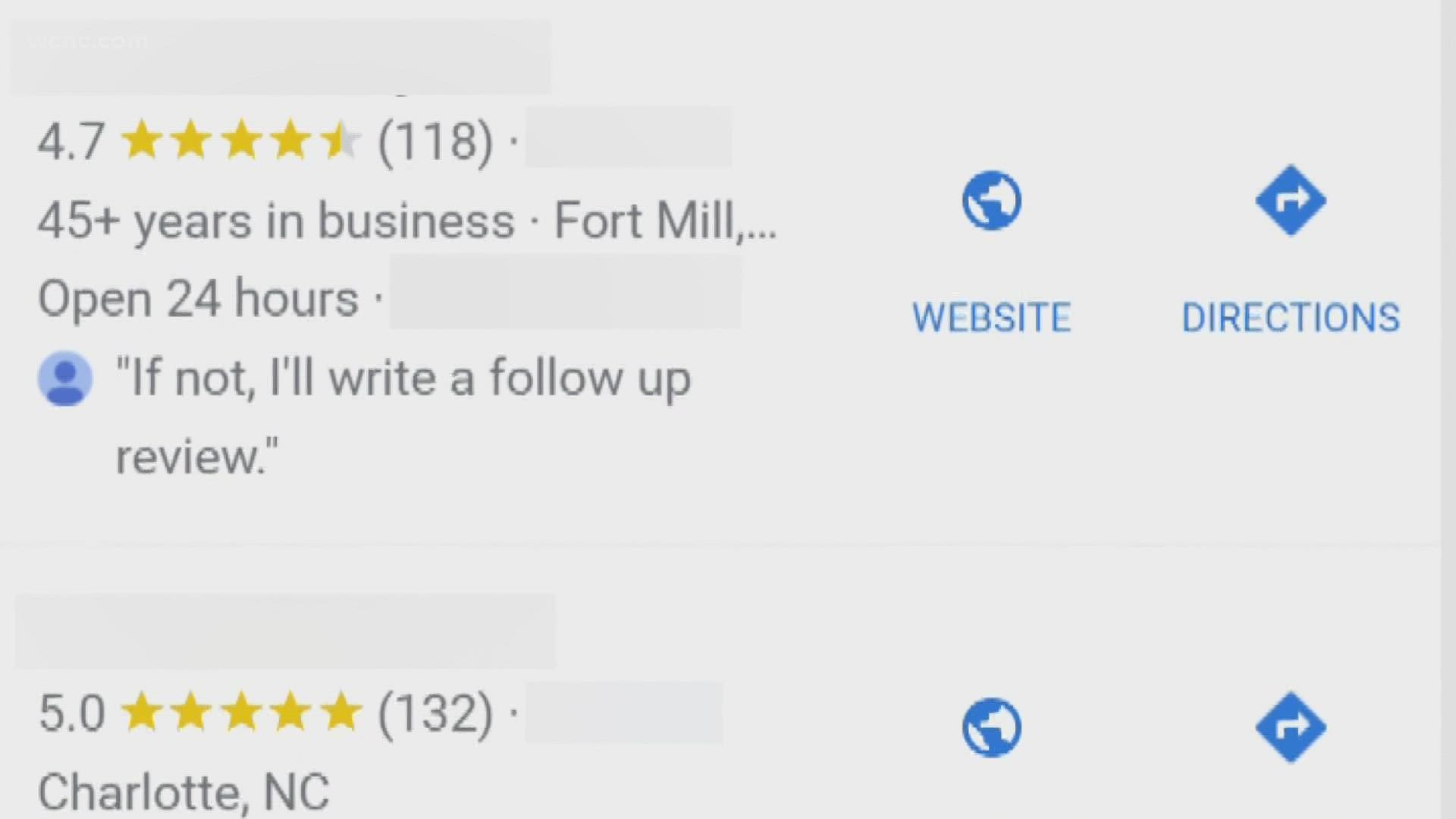CHARLOTTE, N.C. — Amazon is cracking down on fake reviews. The online giant has filed a suit against two companies for giving money or product to leave a positive review. The tactics used by third-party sellers to generate fake reviews have become so bad in the last five years, Amazon included a policy saying it's against their terms of service to incentivize reviews.
Steven Pope, an expert who focuses on Amazon's operations, says fake reviews are bad news for both businesses and customers.
"It just makes it really hard for the consumer to really know what to trust," he said, also noting Amazon has recently started making several changes. Particularly, Pope said more competition is going from Chinese companies.
"Increasing competition from how you sell on the platform from the Amazon aggregators," he said, "about $13 billion has entered the space in the last year alone to go buy Amazon brands. And then, Amazon making that maturity go up and harder to sell on the platform. So that's the reason why fake reviews are showing up is because it's really hard to sell on Amazon."
Pope says there's a clear tell fake reviews have: if it doesn't make sense.
"You're shopping for a chef's knife but you see they're talking about sponges," he said as an example.
It's easy to put Amazon under the microscope, but it's not limited to them; customers are also susceptible to the pitfalls of a fake review when using Google to shop.
Jeff Gilden is the owner and marketing strategist at Charlotte SEO. He's in the business of getting eyes on a business and agrees with the value of a good review.
"People go to Google when they have a need. And if you are the top spot, then they choose you, they feel like you're the best result because Google's shown you at the top," he said.
Ken Bracken, an entrepreneur for HODL, understands as well. If he gets a bad review for his cryptocurrency company, he knows he can't ask Google to take it down unless the reviewer says something threatening.
"We have to police that day in and day out," he said.
Gilden says one method of recourse is to respond to a suspected fake review, then flag it. However, flagging a review can also work against a business in online warfare. Gilden should know; it recently happened to him.
"There was a customer or not a customer, but a fake review left on our listing as well, as somebody actually went in and flagged it. And they said, 'Well, this business doesn't exist.' Well, obviously, we exist," he said.
Gilden had to re-verify Charlotte SEO as a legitimate business, which took almost three weeks. During that time, he said his company's listing didn't show up on a single Google search. He also said companies with 100-200 reviews are more likely to be authentic reviews.
Online shoppers who suspect a fake review on Amazon should report it on the company's contact page. They could then trace it based on the number of reports they get.
Tips to avoid becoming a victim of a scam:
- Emotional appeal: Any pitch that ratchets up your emotion will inhibit your rational judgment.
- Sense of urgency: You MUST act now, or else.
- Request for unorthodox payment: Gift cards, prepaid credit cards, wire transfers, etc.
- Explanations that don't ring true: If your new “landlord” can’t show you the inside of the house, that could be because they don’t own it.
- You won, now pay up: It’s not a prize if you have to pay for it. Taxes, fees, shipping, whatever.
- Too good to be true: That’s because it’s not true. Sorry, your long-lost relative didn’t die, leaving you millions. That car you bought online for a third of its Kelly Blue Book value doesn’t really exist. The son of a billionaire diamond broker didn’t “swipe right” on you and fall instantly in love. That work-at-home job paying you hundreds of dollars an hour for stuffing envelopes isn’t real.
WCNC Charlotte is always asking "where's the money?" If you need help, reach out to the Defenders team by emailing money@wcnc.com.
Contact Jane Monreal at jmonreal@wcnc.com and follow her on Facebook, Twitter and Instagram.

